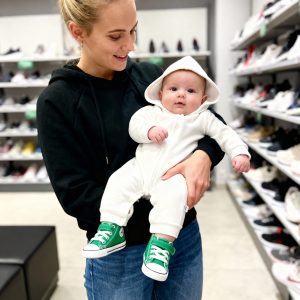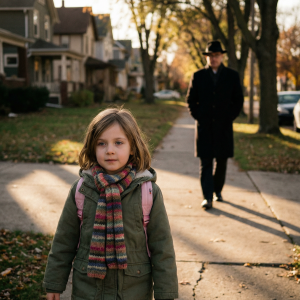When Anonymous Gifts Turn Into a Terrifying Investigation 😱😱
Each morning brought the same bewildering routine for Harold: stepping onto his front porch to discover a pristine loaf of bread sealed in clear plastic wrap, waiting for him like clockwork. The packaging displayed a vibrant label featuring the name of a bakery he’d never heard of—something that sounded distinctly foreign, as though it belonged to a distant land. From the very first sighting, an uncomfortable sensation settled in his stomach that something wasn’t quite right.
Initially, Harold convinced himself that perhaps one of his neighbors had taken notice of his solitary lifestyle and decided to extend a helping hand with his grocery needs.
The gesture warmed his heart momentarily, yet he couldn’t bring himself to consume the bread—his instincts whispered that unexpected generosity rarely appears without strings attached.
The following morning delivered an identical scenario: the same bakery item, wrapped in identical packaging, positioned in precisely the same spot. This time, Harold wondered if perhaps the local social services department had implemented a new assistance program specifically designed for senior citizens.
However, what puzzled him most was the complete absence of any communication from his neighbors about such an initiative, and he certainly hadn’t received any official correspondence explaining the program.
By the third consecutive day, Harold’s anxiety reached its breaking point. Every detail troubled him: the precise timing, the mysterious origin of the deliveries, the foreign-sounding bakery name.
Clutching the latest loaf against his chest, he marched directly to his neighborhood grocery store. Approaching the clerk behind the counter, he inquired nervously:
“Excuse me, are you folks responsible for these bread deliveries? Perhaps you’re running some sort of new customer outreach program?”
The cashier stared at him as though he’d completely lost touch with reality.
“What on earth are you talking about, sir? We don’t operate any promotional campaigns or charitable programs. We simply sell our products here in the store—we certainly don’t make house calls,” she replied with obvious irritation.
Harold departed the store feeling more unsettled than ever. The deeper he pondered the situation, the more his anxiety intensified. He now felt genuinely afraid to even handle the bread—what if someone had tampered with it? What if this was an elaborate poisoning scheme targeting him specifically?
On the fourth morning, Harold decided to implement a surveillance strategy. He retrieved an outdated video camera from his storage closet—the same device he’d once used to record family celebrations—and positioned it to monitor his front porch area.
When he reviewed the recorded footage later that morning, his heart practically stopped beating. The screen clearly revealed a small unmanned aircraft silently approaching his residence at precisely 4:00 AM, hovering steadily above his porch, gently releasing a bagged loaf of bread, then disappearing into the darkness.
Harold’s breath caught in his throat. The mystery had evolved into something far more sinister: this definitely wasn’t the work of concerned neighbors or government assistance programs. This represented something entirely different and potentially dangerous.
With shaking hands, he gathered his belongings and headed straight to the local police station. What he discovered there would change everything.
After presenting the video evidence, Harold struggled to articulate his concerns coherently. The officers exchanged knowing glances, and one of them suppressed a small laugh:
“Congratulations, sir. You’ve become an unwitting participant in a corporate experiment.”
The investigation revealed that an innovative technology startup had chosen to pilot an unconventional bread delivery service using drone technology. Harold’s residential address had somehow been included in their customer database for field testing.
The explanation traced back several days when Harold, attempting to check his local weather forecast on his smartphone, had accidentally tapped on a digital advertisement and unknowingly enrolled in a monthly bread subscription service.
He genuinely couldn’t comprehend how the mistake had occurred—from his perspective, he’d simply “pressed the wrong area of the screen.” In reality, however, he’d activated a complimentary trial membership.
Upon hearing this explanation, Harold experienced a complex mixture of relief and frustration. The company promptly processed a full refund and terminated his subscription, though an underlying sense of unease continued to linger.
Even now, he still couldn’t convince himself to taste any of the bread that remained in his kitchen—those loaves continued to appear far too suspicious for his comfort.





